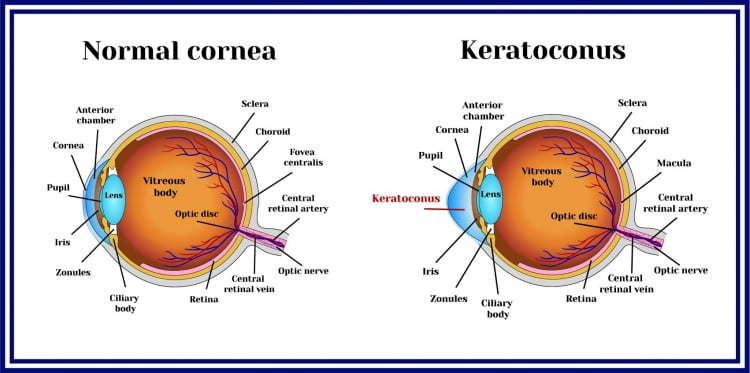November 10th is World Keratoconus Day, and the team at Northeastern Eye Institute wanted to take advantage of this observance to make sure you know your options when dealing with this vision condition. Fortunately, this rare eye disorder is easily treated.
Keratoconus is a progressive vision disorder that occurs when your cornea begins to thin, causing it to morph from a round, dome-like shape into a cone-like shape. This causes your vision to become significantly distorted. Keratoconus often develops in your teens or early 20s, and it can occur in one or both eyes.

In the early stages, keratoconus symptoms include:
- Mild blurring of vision
- Slightly distorted vision
- Sensitivity to light and glare
- Eye redness or swelling
As the condition progresses to more advanced stages, you may begin to experience the following symptoms:
- Increasingly blurry and distorted vision
- Increased nearsightedness and astigmatism
- Frequent changes to your eyeglass prescription
- Your contact lenses may no longer fit properly
Keratoconus Treatment Options
In the early stages of keratoconus, clear vision can usually be restored using glasses or rigid, gas permeable contact lenses. Once keratoconus becomes more advanced, you may need to undergo one of the following treatments to restore clear vision:
- Corneal crosslinking to strengthen the corneal tissue and stem the progression of bulging which is distorting your vision
- Intacs corneal implants can be placed under the surface of your cornea to reduce the cone-like shape
- Corneal transplant (this is only recommended in very severe cases)
You can visit the National Keratoconus Foundation website for additional information. At Northeastern Eye Institute, our ophthalmologists have extensive experience treating keratoconus, and we’ll recommend the most effective treatment option for your unique situation.
Contact our Northeastern Pennsylvania Ophthalmologists
If you would like to learn more about your keratoconus treatment options, please contact Northeastern Eye Institute using the form on this page or call 855-204-6888 today to schedule an appointment. We have 15 offices conveniently located in Scranton, Wilkes-Barre and throughout the Northeastern Pennsylvania area.